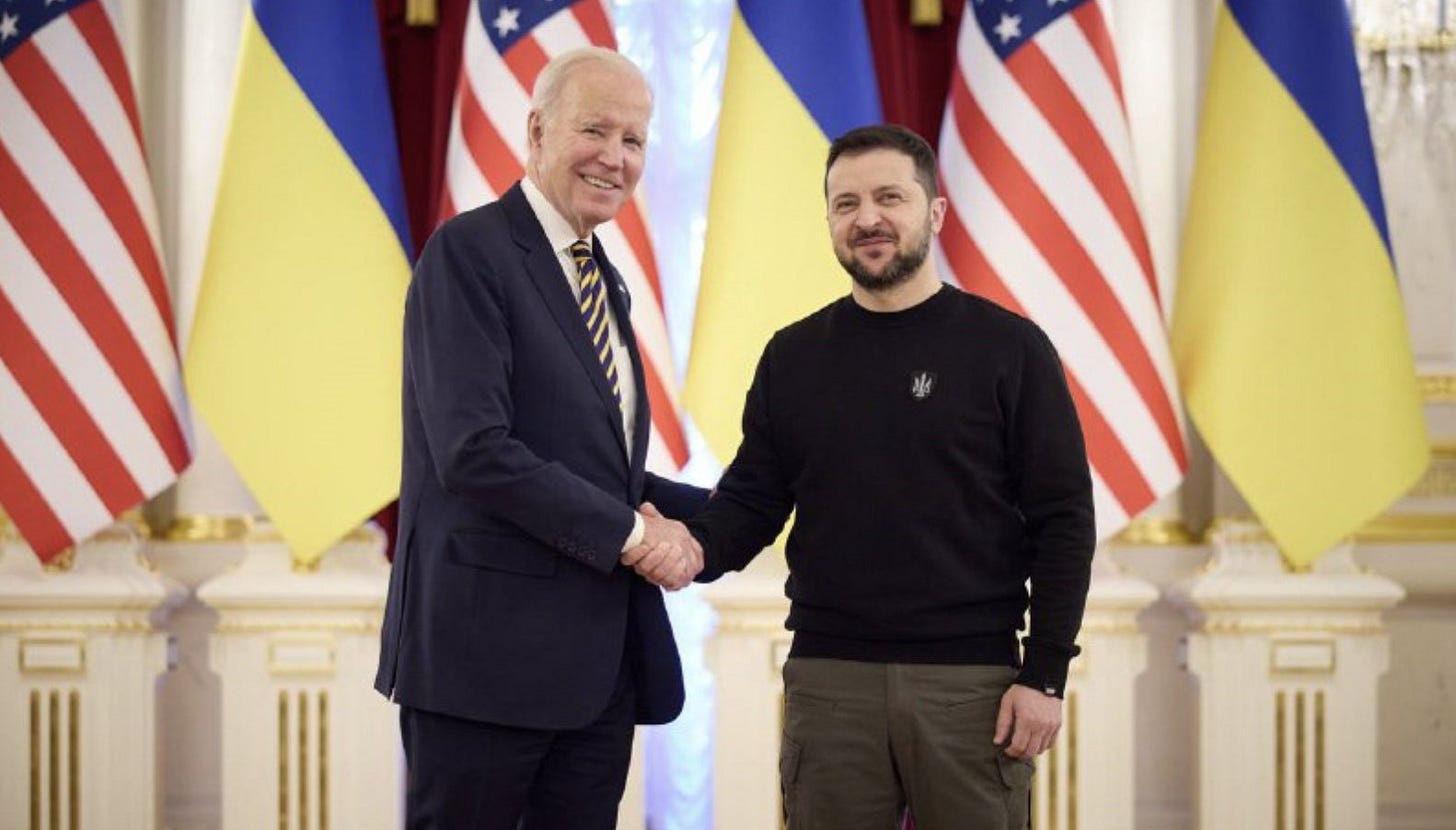Dominance, Hierarchy, And International Order
A recent history
Joe Biden timed his Kyiv visit to match the Russian offensive getting underway in eastern Ukraine and pre-empt the one-year anniversary of Vladimir Putin’s renewed invasion. Moscow was the intended audience of this display.
Whatever the reader thinks about the American president, or the Ukrainian one, their show of confidence this week did have a psychol…



